June 24, 2024 •
Ontario Lobbying Target Lists Have Changed
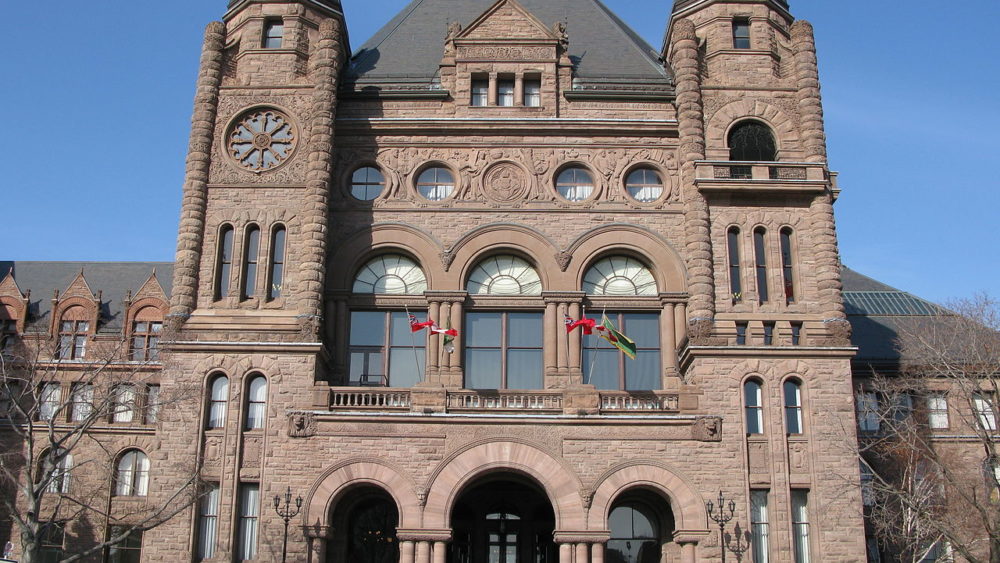
Legislative Assembly of Ontario building - Saforrest (https://creativecommons.org/licenses/by/3.0)
The Office of the Integrity Commissioner has updated the Ontario Lobbyists Registry to conform to a recent cabinet shuffle that resulted in changes to ministers’ titles and ministry name. Specifically, amendments to Ontario Regulation 146/10, Public Bodies and Commission Public […]
The Office of the Integrity Commissioner has updated the Ontario Lobbyists Registry to conform to a recent cabinet shuffle that resulted in changes to ministers’ titles and ministry name. Specifically, amendments to Ontario Regulation 146/10, Public Bodies and Commission Public Bodies, authorized under the Public Service of Ontario Act, 2006, added five new agencies, removed 12 agencies, and changed the name of one of the agencies.
The electronic lobbyist registry will now automatically remove previous selections of the changed targets (ministries) from active registrations. However, the new or amended ministers’ offices and ministries will need to be manually selected by the registrants.
As an example from the Office, the “Ministry of Energy” will automatically be removed from active registrations. However, if a registrant is still lobbying this ministry, they are required to update their registrations by manually selecting “Ministry of Energy and Electrification.”
The Office has created a webpage listing the changes at https://www.oico.on.ca/en/changes-lobbying-target-names, where one can find lists of the new names of ministers’ offices, the ministries, the new ministries, and the removed agencies.
In their June 19 monthly newsletter, the Office of the Integrity Commissioner has stated, “Lobbyists and senior officers should check their registrations to ensure their ministry and agency target lists are up to date. As always, it remains the responsibility of each consultant lobbyist and senior officer to ensure that their registrations are accurate. Consultant lobbyists and senior officers have 30 calendar days under the Lobbyists Registration Act, 1998 to provide these updates.”
June 5, 2024 •
Canadian Federal By-election For Electoral District of Cloverdale–Langley City (British Columbia) To Be Called

Flag of Canada
Sometime before November 30, 2024, a by-election will be announced for the seat in the Canadian Federal House of Commons representing Cloverdale–Langley City in the province of British Columbia. On June 3, the Chief Electoral Officer of Canada, Stéphane Perrault, […]
Sometime before November 30, 2024, a by-election will be announced for the seat in the Canadian Federal House of Commons representing Cloverdale–Langley City in the province of British Columbia.
On June 3, the Chief Electoral Officer of Canada, Stéphane Perrault, received official notice from the Speaker of the House of Commons that the seat for Cloverdale–Langley City (British Columbia) became vacant following the resignation of John Aldag, who resigned on May 27 in order to run in the provincial elections this fall in British Columbia.
Under the law, the by-election date must be announced between June 14 and November 30, 2024, and will signal the start of the by-election period.
According to Elections Canada, the earliest date the by-election can be held is July 22, 2024.
June 3, 2024 •
June 24 Canadian Federal By-election For Electoral District of Toronto–St. Paul’s (Ontario)

On June 24, a Canadian federal by-election will be held in the electoral district of Toronto–St. Paul’s (Ontario) to fill a vacancy in the House of Commons. On January 16, the Chief Electoral Officer of Canada, Stéphane Perrault, had received […]
On June 24, a Canadian federal by-election will be held in the electoral district of Toronto–St. Paul’s (Ontario) to fill a vacancy in the House of Commons.
On January 16, the Chief Electoral Officer of Canada, Stéphane Perrault, had received official notice from the Speaker of the House of Commons that the seat for Toronto—St. Paul’s (Ontario) became vacant following the resignation of Carolyn Ann Bennett.
Bennett officially resigned from her seat in the House of Commons on January 16, 2024, and was appointed on the same day as Canada’s Ambassador to Denmark.
The date for the election was not announced until May 19, which signaled the start of the by-election period.
May 8, 2024 •
The Lifetime Lobbying Ban Act Introduced in Congress
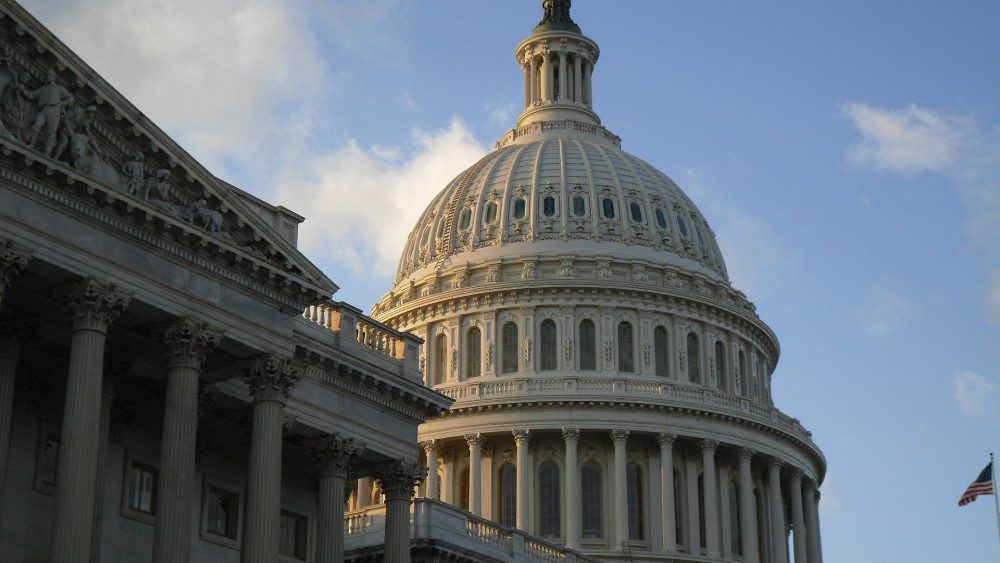
The Lifetime Lobbying Ban Act was in introduced in the U.S. House of Representatives. The short three-page bill, which would repeal the current one- or two-year waiting period for former members of Congress to work as a federal lobbyist and […]
The Lifetime Lobbying Ban Act was in introduced in the U.S. House of Representatives.
The short three-page bill, which would repeal the current one- or two-year waiting period for former members of Congress to work as a federal lobbyist and replace it with a permanent ban, was introduced on April 30.
On the same day U.S. Rep. Jared F. Golden introduced the legislation along with five other bills addressing governmental ethics.
These include, as described in his press release:
- The Congressional and Executive Foreign Lobbying Ban, which would ban retired members of Congress, senior executive branch officials, and high-ranking military officials from lobbying on behalf of foreign interests;
- The Stop Foreign Payoffs Act, which would ban members of Congress, presidents, vice presidents, and Cabinet secretaries, as well as their close family members, from earning a salary or holding investments in foreign businesses for as long as the official is in office;
- The Crack Down on Dark Money Act, which would end the ability of mega-donors to launder secret political activity through 501(c)(4) nonprofits by reducing the cap on political activity by those nonprofits from 50 percent of all spending to 10 percent and requiring them to disclose all donors of $5,000 or more if there are political expenditures;
- The Consistent Labeling for Political Ads Act, which would increase transparency in online political advertising by requiring social media platforms to make ad labels “sticky,” meaning they would appear on paid political content regardless of how it is shared or where it appears; and
- The Fighting Foreign Influence Act, which would require tax-exempt organizations, including think tanks, to disclose high-dollar gifts from foreign governments or political parties, impose a lifetime ban on foreign lobbying by former presidents, vice presidents, senior military officials and require political campaigns to verify online donors have a valid US address.
According to Golden’s press release, this raft of bills is part of the Government Integrity & Anti-Corruption Plan, which has the stated goal of strengthening government integrity and fighting corruption.
April 2, 2024 •
GAO’s Report on Lobbying Compliance for 2023
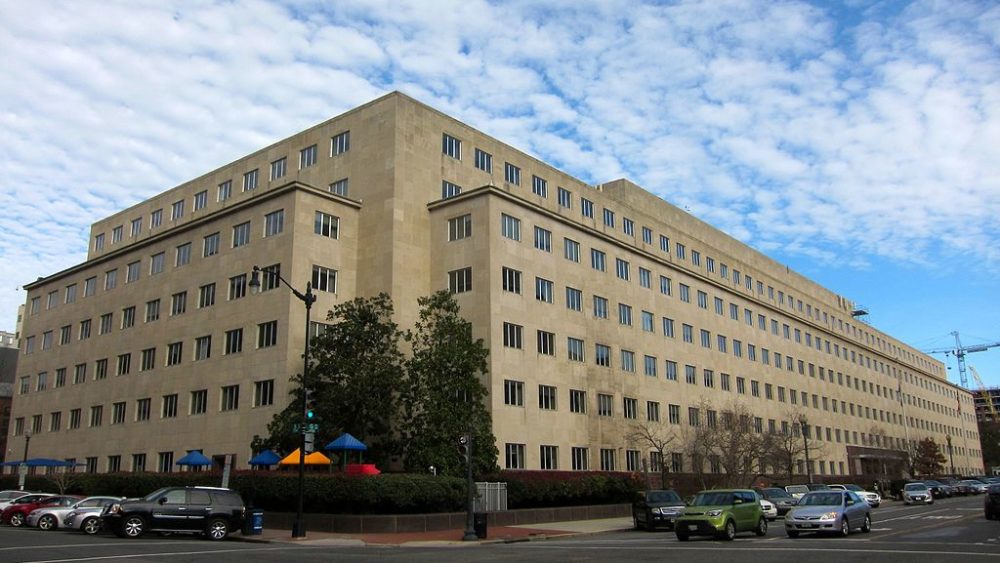
United States Government Accountability Office
On April 1, the U.S. Government Accountability Office (GAO) released its audit of federal lobbying compliance for 2023. For the audit, the GAO reviewed a random sample of 98 quarterly disclosure reports filed for the third and fourth quarters of […]
On April 1, the U.S. Government Accountability Office (GAO) released its audit of federal lobbying compliance for 2023.
For the audit, the GAO reviewed a random sample of 98 quarterly disclosure reports filed for the third and fourth quarters of calendar year 2022 and the first and second quarters of calendar year 2023.
They also reviewed random samples of 160 LD-203 reports for the year-end 2022 and midyear 2023 reports.
Among its findings, the GAO concluded 97% of filers of lobbying disclosure reports were able to provide documentation to support reported income and expenses, 7% of LD-203 reports were missing reportable contributions, and 94% of lobbyists who filed new registrations also filed LD-2 reports as required for the quarter in which they first registered.
The audit estimates at least 23% of all lobbying disclosure reports did not properly disclose formerly held covered positions.
The 56-page report is titled “2023 Lobbying Disclosure: Observations on Compliance with Requirements.”
April 1, 2024 •
Expense Limits Updated for Third Party Political Activities in Canadian Federal Elections
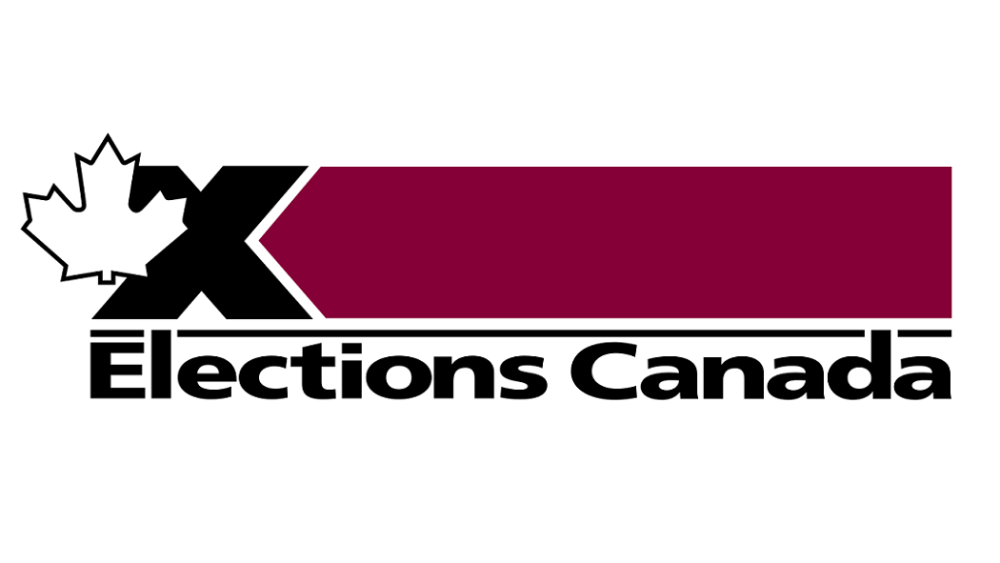
On April 1, 2024, Elections Canada published the updated limits on expenses for regulated activities of third parties involved in federal elections in Canada. The Canada Elections Act imposes a limit on expenses a third party can incur for regulated […]
On April 1, 2024, Elections Canada published the updated limits on expenses for regulated activities of third parties involved in federal elections in Canada.
The Canada Elections Act imposes a limit on expenses a third party can incur for regulated political activities.
For the period of April 1, 2024, to March 31, 2025, a third party is prohibited from incurring overall election advertising expenses of a total amount of more than $602,700 during a general election.
The previous limit was $579,950.
For the same period of April 1, 2024, to March 31, 2025, a third party is prohibited from incurring election advertising expenses in a given electoral district of a total amount of more than $5,166 during a general election.
The previous limit was $4,971.
Adjustments are made annually based on a formula of a base amount multiplied by the inflation adjustment factor in effect for the period.

Confederation Building, Newfoundland, CA - by shhewitt
On April 15, 2024, a by-election will be held for the seat in Newfoundland and Labrador’s House of Assembly for the District of Fogo Island-Cape Freels. Travis Wooley, Acting Chief Electoral Officer of Newfoundland and Labrador, issued the election writ […]
On April 15, 2024, a by-election will be held for the seat in Newfoundland and Labrador’s House of Assembly for the District of Fogo Island-Cape Freels.
Travis Wooley, Acting Chief Electoral Officer of Newfoundland and Labrador, issued the election writ on March 17.
The seat had become vacant on January 22 after the death of Derrick Bragg, who had served most recently as the Minister of Fisheries, Forestry and Agriculture.
January 29, 2024 •
FEC Updates Lobbyist Bundling Disclosure Threshold
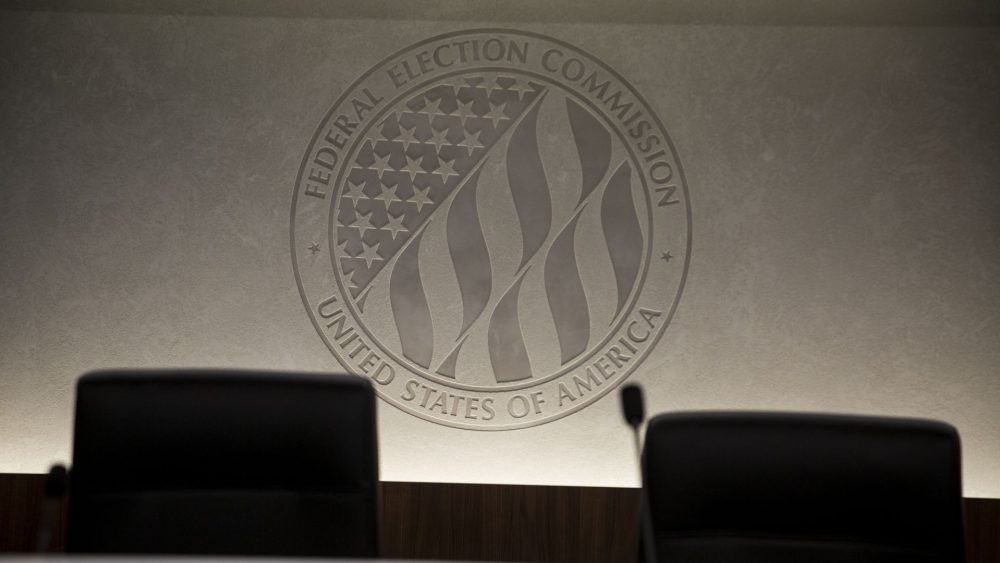
FEC; Photo: Sarah Silbiger/CQ Roll Call
On January 29, the Federal Election Commission (FEC) published its price index adjustments for expenditure limitations and the federal lobbyist bundling disclosure threshold. The lobbyist bundling disclosure threshold has increased for 2024 from $21,800 to $22,700. This threshold amount is […]
On January 29, the Federal Election Commission (FEC) published its price index adjustments for expenditure limitations and the federal lobbyist bundling disclosure threshold.
The lobbyist bundling disclosure threshold has increased for 2024 from $21,800 to $22,700.
This threshold amount is adjusted annually.
Federal law requires authorized committees of federal candidates, leadership political action committees (PACs), and political party committees to disclose contributions bundled by lobbyists and lobbyists’ PACs.
Additionally, the FEC published its adjusted Coordinated Party Expenditure Limits for political parties for 2024.
January 29, 2024 •
Canadian Federal By-Election for Durham (Ontario) on March 4

Flag of Canada
On March 4, a federal by-election will be held in the electoral district of Durham (Ontario) to fill a vacancy in the House of Commons. On August 3, 2023, the Chief Electoral Officer of Canada, Stéphane Perrault, received official notice […]
On March 4, a federal by-election will be held in the electoral district of Durham (Ontario) to fill a vacancy in the House of Commons.
On August 3, 2023, the Chief Electoral Officer of Canada, Stéphane Perrault, received official notice from the Speaker of the House of Commons that Member of Parliament Erin O’Toole’s seat was vacant.
O’Toole had resigned from the seat after being removed as leader of the Conservative Party earlier in 2023.
The date for the election was not announced until January 28, which signaled the start of the by-election period.
January 18, 2024 •
By-Election to be Called for Vacant Toronto—St. Paul’s (Ontario) Seat in House of Commons of Canada

Sometime before July 14, 2024, a by-election will be announced for the seat in the House of Commons representing Toronto–St. Paul’s in the province of Ontario. On January 17, the Chief Electoral Officer of Canada, Stéphane Perrault, received official notice […]
Sometime before July 14, 2024, a by-election will be announced for the seat in the House of Commons representing Toronto–St. Paul’s in the province of Ontario.
On January 17, the Chief Electoral Officer of Canada, Stéphane Perrault, received official notice from the Speaker of the House of Commons that the seat for Toronto—St. Paul’s (Ontario) became vacant following the resignation of Carolyn Ann Bennett.
Bennett officially resigned from her seat in the House of Commons on January 16, 2024, and was appointed on the same day as Canada’s Ambassador to Denmark.
Under the law, the by-election date must be announced between January 27 and July 14, 2024, and will signal the start of the by-election period.
According to Elections Canada, the earliest date the by-election can be held is March 4, 2024.
January 8, 2024 •
Contribution Limits Increase in Prince Edward Island
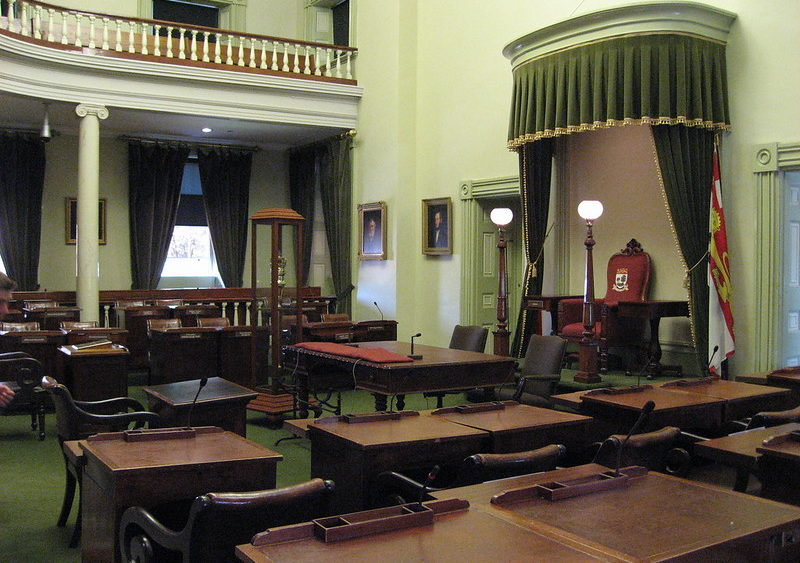
Prince Edward Island Legislative Assembly Chamber - Joseph Thornley
Campaign contribution limits have increased in Prince Edward Island, Canada, for 2024. In a calendar year, a person individually may contribute $3,250 to each party. A contribution to a registered candidate affiliated with a registered party is considered a contribution […]
Campaign contribution limits have increased in Prince Edward Island, Canada, for 2024.
In a calendar year, a person individually may contribute $3,250 to each party.
A contribution to a registered candidate affiliated with a registered party is considered a contribution to the party.
An individual may choose to donate the maximum to each registered party and any independent candidates.
Individual contribution limits are subject to an annual increase of $50 every January 1.
The previous contribution limit from 2023 was $3,200.
January 8, 2024 •
Ontario’s Political Contribution Limits Increase

Legislative Assembly of Ontario building - Saforrest (https://creativecommons.org/licenses/by/3.0)
Campaign contribution limits have increased in Ontario, Canada, for 2024. In a calendar year, a person individually may contribute $3,375 to each party, to each constituency association and nominations contestants of a party, and to each leadership contestant of a […]
Campaign contribution limits have increased in Ontario, Canada, for 2024.
In a calendar year, a person individually may contribute $3,375 to each party, to each constituency association and nominations contestants of a party, and to each leadership contestant of a party.
Additionally, in a campaign period, a person may contribute $3,375 to each candidate of a party, and to each independent non-party candidate.
The total contribution made with respect to a single fundraising event by a contributor may not exceed $3,375 multiplied by the indexation factor.
The previous contribution limits from 2023 were $3,350.
January 8, 2024 •
FEC Adjusts Penalty Amounts for Inflation
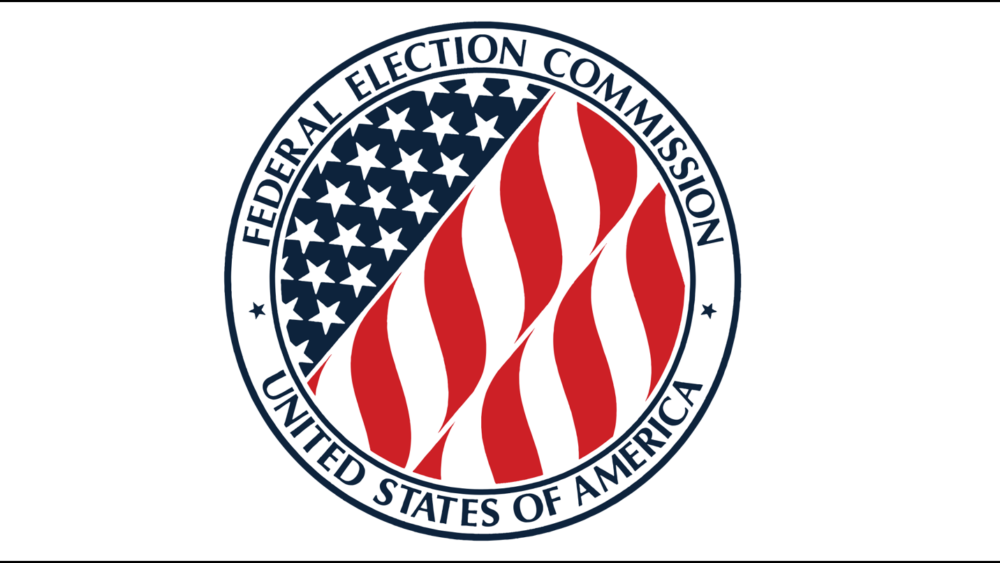
The Federal Election Commission has announced its civil monetary penalty amounts, adjusted for inflation, for 2024. The potential fines for civil violations of federal campaign finance laws have increased to range from $7,256 to $84,852, from the previous range of […]
The Federal Election Commission has announced its civil monetary penalty amounts, adjusted for inflation, for 2024.
The potential fines for civil violations of federal campaign finance laws have increased to range from $7,256 to $84,852, from the previous range of $7,028 to $82,188.
The amounts are calculated through a statutory formula applying the most recent “cost-of-living adjustment multiplier,” issued by the Office of Management and Budget, to the current amounts.
The amended civil monetary penalties took effect as of January 5, 2024, the publication date in the Federal Register.
January 8, 2024 •
Minimum Wage Required by Federal Contractors Increases for 2024
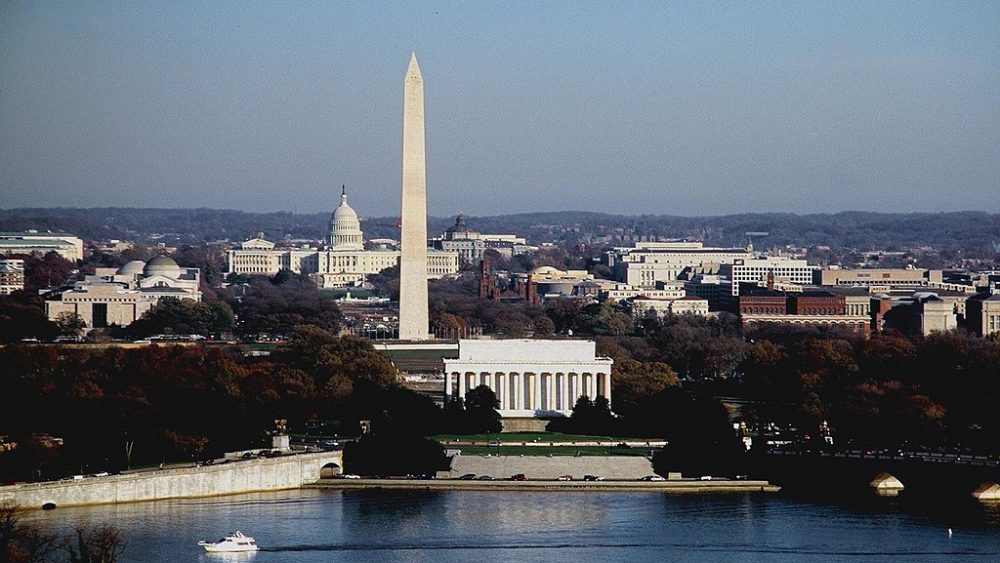
Washington DC Skyline - by Washington Photo Safari
For 2024, the minimum wage required to be paid by US Federal Contractors under Executive Order 14026 increases to $17.20 an hour. Starting on January 30, 2022, all federal agencies were required to incorporate a $15 minimum wage in new […]
For 2024, the minimum wage required to be paid by US Federal Contractors under Executive Order 14026 increases to $17.20 an hour.
Starting on January 30, 2022, all federal agencies were required to incorporate a $15 minimum wage in new contract solicitations pursuant to an executive order signed by President Joseph R. Biden on April 27, 2021.
The order requires federal contractors to pay a minimum wage for employees working on or in connection with a federal government contract.
Beginning January 1, 2024, and for each subsequent year, tipped workers must now receive 100% of the wage received by non-tipped workers, currently $17.20 an hour, eliminating the difference between the type of workers.
This applies to tipped employees performing work on or in connection with contracts covered by Executive Order 14026.
Contractors and subcontractors must certify they meet this condition requiring the minimum wage.
This certification is a condition of payment to the contractors from the government.
The order does not apply to grants; contracts, contract-like instruments, or certain specific type of agreements with Indian Tribes.
If a state or municipality has a higher minimum wage, the Executive Order does not excuse noncompliance with the laws requiring the higher wage.
State and Federal Communications, Inc. provides research and consulting services for government relations professionals on lobbying laws, procurement lobbying laws, political contribution laws in the United States and Canada. Learn more by visiting stateandfed.com.

